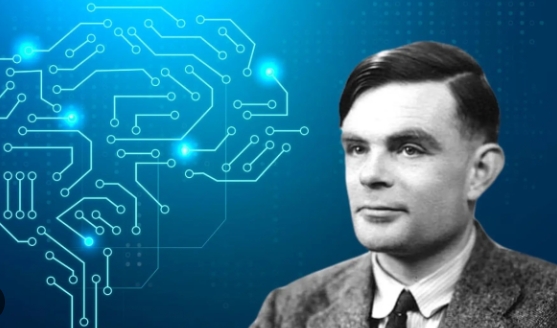Alan Turing is often hailed as the father of artificial intelligence, a genius whose work revolutionized the field of computer science.
Early Life and Education:
Turing was born in London in 1912 and showed an aptitude for mathematics from a young age. He attended Cambridge University, where he studied mathematics and went on to publish groundbreaking papers on computability and cryptography.
Codebreaker at Bletchley Park:
During World War II, Turing worked as a codebreaker at Bletchley Park, where he played a crucial role in breaking the German Enigma code. His work at Bletchley Park is credited with shortening the war by years.
The Turing Machine:
Turing is best known for his concept of the Turing machine, a theoretical device that laid the foundations for modern computing. The Turing machine is considered the basis for all modern computers.
The Turing Test:
Turing also proposed the concept of the Turing test, which evaluates a machine’s ability to exhibit intelligent behavior indistinguishable from that of a human. This test is still used today as a benchmark for artificial intelligence.
Legacy:
Despite his immense contributions to computer science, Turing’s life was marked by tragedy. He was persecuted for his homosexuality, which was illegal in England at the time. Turing died in 1954, but his legacy lives on in the continued development of artificial intelligence and computer science.
In conclusion, Alan Turing was a visionary whose work laid the foundation for modern computing and artificial intelligence. His genius continues to inspire and shape the field of computer science to this day.

